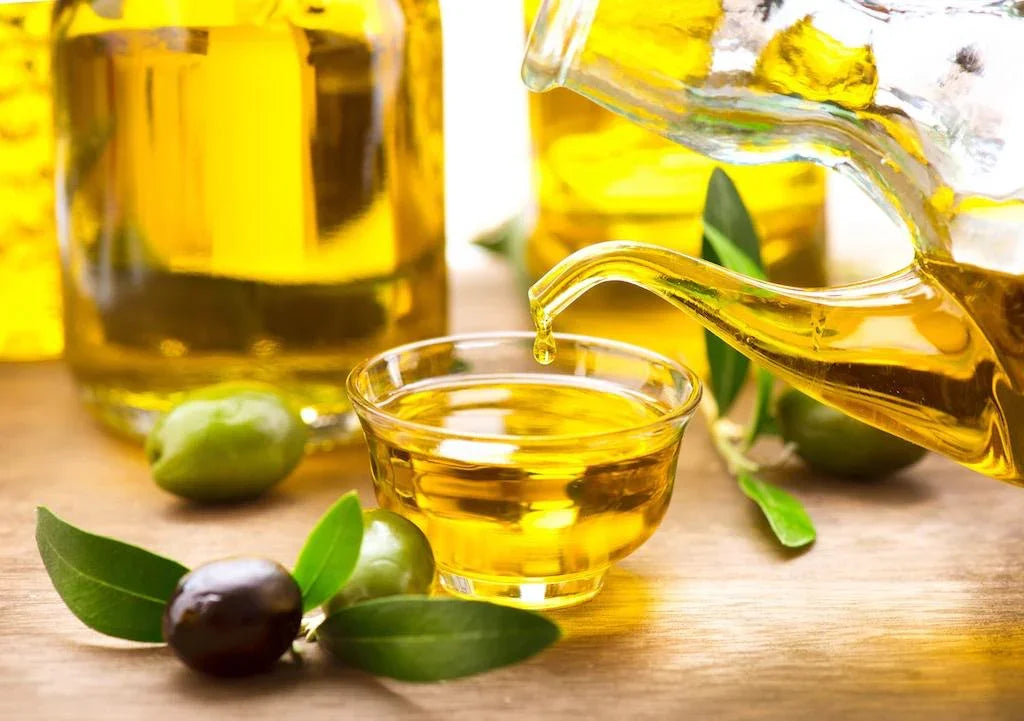Cooking oils and fats, alongside carbohydrates and proteins, are the third essential components of human nutrition, playing a crucial role in overall health and well-being.
Cooking oils and fats are not just flavorful additions to our meals; they are essential components of a balanced diet. In addition to providing energy, cooking oils and fats contain essential fatty acids that our bodies cannot produce on their own. These fatty acids are crucial for absorbing fat-soluble vitamins such as A, K, E, and D, which are essential for maintaining good health.
Oils and fats act as exceptional heat conductors, ensuring even heating throughout the cooking process, and releasing their natural flavors. These culinary heroes, improve the color and texture of food, that creates a symphony of flavors that tantalize the taste buds, also provide a sense of lasting fullness.
While eliminating fats altogether is not advisable, it is important to choose the right types of fats and avoid excessive consumption. Our bodies need a certain amount of essential fatty acids, which cannot be synthesized by our bodies and must be obtained from food.
The crucial point here is, for the absorption of beneficial fats in the body and avoiding the drawbacks of harmful fats, which cooking oil is the best choice? The fact is the type of oil consumed by families is often linked to the roots of many cardiovascular diseases, cancer, and fatty liver issues.

The harms of refined vegetable oils and susceptibility to various diseases
The drawbacks of refined vegetable oils are significant for health. You may have heard that grandparents attribute their longevity to animal oils (pure oils) or ghee and tell us that young people using vegetable oils will get sick. While genuine oils are rich in benefits, these vegetable oils are all harmless.
In this section, we provide you with information about the harms of refined vegetable oil. If your health and longevity matter to you, you should avoid using these oils.
The disadvantages of refined vegetable oils
- Our bodies need water, salt, and oil, but unfortunately, these three substances have additives today that are toxic to the body.
- The temperament of modern refined vegetable oils is cold, suitable for machinery and metal devices rather than human consumption. In contrast, local animal fats, Tallow oil, Organic Ghee, clarified butter, sesame oil, and olive oil are beneficial for health.
- Among the most significant drawbacks of refined vegetable oils are heart artery constriction, cholesterol deposits in blood vessel walls, increased blood pressure, elevated bad cholesterol, and reduced good cholesterol.
- The main cause of many modern diseases is solid oils, and we often overlook this issue.
- According to statistics, the leading cause of death in Iran is cardiovascular diseases. Well, what is the reason? The main reason is improper nutrition and excessive fat consumption.
- Our focus extends beyond merely using vegetable oil bought in kilograms or liters; it encompasses sweets, chips, snacks, etc., made with vegetable oil, which are detrimental to our health.
- The lethargy, apathy, and physical weakness that affect the youth are among the harms of vegetable oil (solid and liquid). Simply compare the health, lifespan, strength, and weakness of the older generation with the new generation to understand our point.
- Among the drawbacks of refined vegetable oils, we can mention cholesterol deposits in the walls of blood vessels, posing a risk of heart attack.
- Vegetable oil contains trans fatty acids, which have significant health risks.
- Another downside of refined vegetable oils is the potential for causing painful gastric ulcers.
- Disturbances in glucose metabolism are also among the adverse effects of this unhealthy oil.
- Increased inflammation in the body.

If you don't use refined vegetable oils
By avoiding refined vegetable oil, approximately 50% of your diseases decrease, and you become eligible for insurance against them.
If you're wondering what the other 50% is, you should also embrace the following principles:
- Consume healthy salt: Choose Sea salt or rock salt over refined factory-produced salt.
- Drink healthy water
- Avoid processed foods: Sandwiches, fast food, frozen meals, and ready-to-eat foods are often high in unhealthy ingredients.
- Avoid factory-made foods: These foods often contain added preservatives
- Use natural cookware: Opt for copper, brass, clay, and enamelware dishes instead of aluminum and steel dishes.
- Consider cupping therapy or Hijama
To counteract the drawbacks of vegetable oil, what can we do?
Given the numerous health concerns associated with refined vegetable oil, why do we continue to use it? Instead of refined vegetable oil, we can use animal oils or olive oils. These oils are known to have numerous health benefits.
Olive Oil
Olive oil is an essential component of healthy diets. According to many nutrition experts, it is the best oil for a fatty liver. When choosing olive oil, pay attention to using extra virgin or virgin oils as much as possible. In the structure of extra virgin and virgin oils, fats are extracted without the use of chemical substances and contain more than 30 types of phenolic compounds that have anti-inflammatory properties and promote blood vessel dilation.
Another reason that makes olive oil the best cooking oil is its ability to prevent Alzheimer's. According to scientific findings, some types of extra virgin olive oil contain a compound called "Oleocanthal", which has anti-inflammatory and anti-forgetting properties. The presence of this substance in the oil is recognizable with a sharp aftertaste after consumption.
Moreover, olive oil plays a significant role in improving heart health. Extra virgin olive oil, compared to other oils, is the best cooking oil in terms of containing substantial amounts of unsaturated fats. This type of fat can effectively reduce the levels of harmful cholesterol in the body. In a scientific study published in 2017, it was revealed that a Mediterranean diet containing 4 teaspoons of olive oil daily was highly successful in improving the levels of beneficial cholesterol in the body. Therefore, olive oil can be considered the best oil for managing obesity as well.
Incredible Benefits of Olive Oil (Types, Usage Methods, Risks, and Side Effects)
If you intend to extensively use olive oil in your cooking, be aware that this oil has a relatively low smoke point. Therefore, it is not a suitable choice for deep-frying for an extended period, as it breaks down quickly and starts to smoke. Some believe that heating olive oil removes all its beneficial polyphenolic compounds, but this claim is not entirely accurate. While heating olive oil does eliminate some polyphenolic compounds, the level of destruction is not so significant that it completely negates the benefits of using olive oil.
Click here to purchase Extra Virgin Olive Oil!

Sesame Oil
Sesame oil is obtained from the yellow seeds of sesame. Sesame, used in bakeries, contains significant amounts of oil that can be extracted. Similar to olive oil, sesame oil is currently unrefined and has not undergone genetic modification. Therefore, sesame oil is a healthy and natural oil that can be used without concern for health. In traditional medicine, this oil is mainly used for its healing properties and the oils based on sesame are recommended for culinary purposes.
Tahini Oil
Tahini oil is an oil based on sesame seeds. If sesame seeds are ground and slightly roasted, it is called tahini. Therefore, the oil obtained from this process is also called tahini oil. It is essentially the same as sesame oil, but with a specific process applied to it. It's interesting to note that one of the best and healthiest edible liquid oils for humans is this tahini oil. The Traditional medicine, now embraced by many, regards sesame oil as one of the finest oils for consumption. This natural oil, akin to olive oil, has a centuries-old history of use for both nourishment and healing.

Ghee or Clarified Butter
Tallow and suet oil also have many benefits if you are active. You can use them instead of refined vegetable oil. Don't let yourself think that tallow oil is smelly.
Firstly, produce tallow oil devoid of any scent. Secondly, ensure that, after a two-week usage period, you become accustomed to its taste and aroma. Consequently, you may experience significantly improved health and a prolonged lifespan.
Properties of Ghee and Its Benefits for the Body
Ghee is derived from the fat of cow, sheep, and goat milk. Similar to animal butter, its fat content ranges from 0.2 to 99.8 percent. It's noteworthy that sheep fat oil has higher cholesterol compared to other animal oils. This oil has a long shelf life, and it is said to last for a century.
While cooking, this oil withstands heat, enduring temperatures of up to two 250 degrees Celsius.
Original ghee or Clarified Butter possesses a delightful aroma and taste. Once you experience it on rice or bread, you won't be able to ignore its charm.
Nutritional Value of Ghee
Beef tallow contains all essential nutrients along with antiviral, antioxidant, antifungal, and antibacterial properties. Beef tallow is rich in saturated fats, containing approximately 7.9 grams of fat. Like all fats, beef tallow has a high calorie content, with roughly one tablespoon providing 112 calories. The total fat intake should be between 25-30% of total calories. Therefore, for someone on a 2000-calorie diet, the ideal fat intake is between 56 to 78 grams, with saturated fat not exceeding 16 grams. While the body can produce its own fat, consuming a small amount of extra oil can be beneficial for overall health.
Important tips for storing ghee
You can keep animal butter at room temperature for 1 to 2 months or refrigerate it for 2 to 3 months without spoilage.
Avoid water and sunlight, as they can spoil ghee and butter. Always store your oil in a tightly sealed container.
Click here to purchase Organic Cow Ghee!

Which oil is suitable for each food?
Frying: Sesame oil, tallow oil
Rice: Ghee derived from cow butter, sesame oil, or olive oil
Lettuce Salad and Shirazi salad: Olive oil
Stews and broth dishes: Ghee (beef and lamb), tallow oil, suet oil sesame oil
Generally, olive oil, tahini oil (is better than sesame oil), natural sunflower oil, and ghee are suitable alternatives to refined vegetable oils.
Flavorful and aromatic tallow oil recipe
In a pot, melt four kilograms of tallow with two cups of yogurt, one cup of homemade apple cider vinegar, and fourteen cardamom pods. After melting, strain the mixture and enjoy its exceptional taste.
Important note:
If the trend of using refined vegetable oil continues like this, in the near future, hospital wards, CCUs, and cardiac surgery operating rooms will be a hundred times busier than now, and the age of death from heart attacks will significantly decrease. The choice is yours.

External Sources
- Cooking oil/fat consumption and deaths from cardiometabolic diseases
- 4 Healthier Cooking Oils (and 4 to Avoid)
- 15 Amazing Health Benefits Of Ghee
Did this article change your perspective on cooking oils? Share your insights and help others make healthier choices. Leave a review today!



